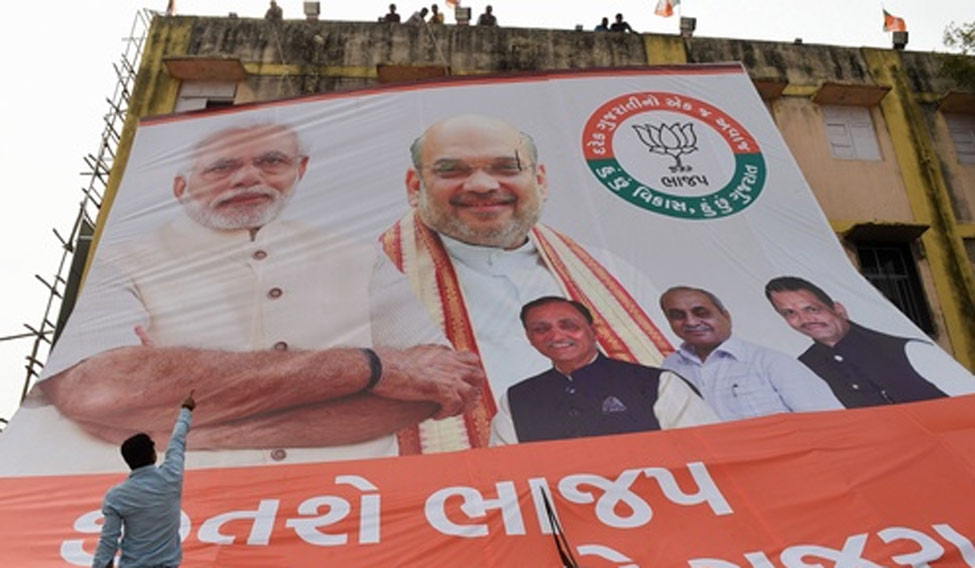Campaigning for the first phase of elections in Gujarat drew to a close on Thursday evening, even as Prime Minister Narendra Modi gave an emotional twist to the campaign by raking up the comments by Congress leader Mani Shankar Aiyar, who called Modi neech (despicable).
Out of the 182 assembly seats, elections to 89 seats will be held on December 9. The second phase of election will be held on December 14.
Addressing a gathering at Limbayat in Surat, Modi said Aiyar called him neech. “Isn't it an insult of Gujarat and high tradition of the country?” Modi asked the gathering. He said people would give a befitting reply when the results came out on December 18.
Aiyar had called Modi neech in response to the latter's remarks on Jawaharlal Nehru with regard to his relations with B.R. Ambedkar.
Congress vice president Rahul Gandhi, who had been aggressively campaigning in Gujarat, was quick to attempt to end the controversy. Gandhi tweeted on his official Twitter handle, “BJP and PM routinely use filthy language to attack the Congress party. The Congress has a different culture and heritage. I do not appreciate the tone and language used by Mr Mani Shankar Aiyar to address the PM. Both the Congress and I expect him to apologise for what he said”.
Aiyar tried to defend himself by saying that the controversy was because of the fact that he was not well conversant in Hindi. “I did not mean low born. I meant low mentality. I translated low as neech. If low means anything else, I apologise,” he said.
The Congress leader has been used to controversies. Ahead of the 2014 Lok Sabha elections, Aiyar had said that Modi would never become Prime Minister in the 21st Century and if he wants to come and sell tea, we would set up a proper place.
Union Minister Ravi Shankar Prasad also reminded that Modi was referred to as Maut Ka Saudagar in the past.
In the elections that had followed, these remarks backfired on the Congress.
The campaign has seen a war of words between the arch-rivals BJP and the Congress, with Modi, Gandhi and national BJP president Amit Shah addressing back-to-back public meetings over the last several days.
The 2017 Assembly election has been a prestige issue for the ruling BJP, which has been in power in the state for the last 22 years. The BJP had set a target of securing more than 150 seats for itself. The highest number of seats the BJP had won under Modi was 127 in 2002, in the elections held after the post-Godhra riots.
The BJP is facing anti-incumbency and unrest from Patidars, OBCs and dalits in the state. Youth leaders Hardik Patel, Alpesh Thakore and Jignesh Mevani have been campaigning aggressively in the state and asking the masses to vote the BJP out of power.
Gujarat Chief Minister Vijay Rupani, state BJP president Jitubhai Vaghani, Congress leader Shaktisinh Gohil and Arjun Modhwadia are among the key candidates in the fray in the first phase of elections.
Analysts feel that the Congress was expected to do well because of the Patel ire and farmers' unrest.
In South Gujarat also, the traders are unhappy over demonetisation and GST.
Several surveys have shown that the BJP is ahead in the race. The Congress was expected to improve its performance of 2012. However, now with Aiyar's comments triggering a new controversy, it remains to be seen how Gujarat responds to it.






